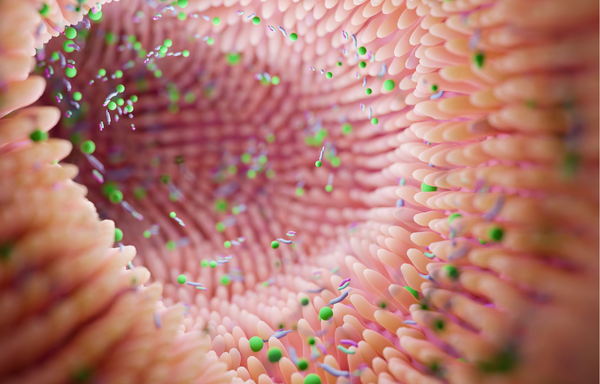

Gut Health: It’s Not Your Microbiome—It’s Your Metabolism
These days, everyone’s talking about gut health. You’ve probably heard terms like:
- Leaky gut
- Gut dysbiosis
- Microbiome imbalance
- Healing your gut
- Boosting immunity through gut health
- Gut-brain axis
It’s everywhere—from supplement commercials to TikTok videos. And while some of it is based in truth, a lot of it misses one major point.
Before you reach for the next bottle of probiotics or a $60 gut powder, ask yourself this:
What’s actually damaging your gut in the first place?
The Gut Isn’t the Problem—It’s the Victim
Your gut symptoms—bloating, irregular bowels, food sensitivities, brain fog, fatigue, skin issues, and more—aren’t always caused by a lack of something.
They’re often a reaction to something else.
More specifically? Chronic inflammation driven by insulin resistance.
Insulin Resistance: The Hidden Trigger
Insulin resistance doesn’t just affect blood sugar. It creates system-wide inflammation that your body quietly deals with every day. Over time, that inflammation irritates and damages the gut lining, disrupts your microbiome, and throws off your entire digestive rhythm.
This is how it plays out:
- High insulin → Chronic inflammation
- Chronic inflammation → Damage to gut lining
- Damage to gut lining → “Leaky gut” + immune activation
- Immune activation → More inflammation
- Repeat
And somewhere along the way, your gut bacteria (aka your microbiome) also shift.
The healthy bacteria start to lose ground to the not-so-helpful ones. That’s what you’ve probably heard called gut dysbiosis.
But here’s the key: Your gut bacteria don’t change for no reason.
They shift in response to what they’re being exposed to every day—your food, your stress, your hormones… and yes, your insulin levels.
It’s Not Just About Taking Probiotics
If your gut is inflamed and irritated, throwing more bacteria into the mix doesn’t fix the problem. In some cases, it might even make it worse.
Probiotics and prebiotics can be helpful after you’ve removed what’s harming your gut—but they won’t undo the damage if the damage is still happening.
So what’s causing that damage?
You guessed it: Chronically high insulin.
The Gut-Brain Axis & Insulin
You may have heard of the gut-brain axis—the idea that your gut and your brain are in constant communication.
It’s true. What affects one affects the other.
Chronic insulin resistance has been linked to anxiety, depression, and cognitive issues. Why? Because the inflammation it causes doesn’t just affect the gut—it affects your brain, your mood, and even your ability to regulate stress and sleep.
How to Heal Your Gut—Without Buying Another Supplement
Here’s the part no one wants to tell you: You don’t need to fix your gut with an expensive cleanse, probiotic, or drink made from fermented mushrooms.
You need to:
- Lower insulin
- Reduce chronic inflammation
- Eat foods that support your metabolism
- Let your body finally start to heal
When insulin is high, your gut lining stays inflamed.
When insulin is stable, your body finally has the chance to recover.
A Low Insulin Lifestyle = A Gut-Healing Lifestyle
Once you begin lowering insulin levels:
- Bloating goes down
- Your digestion improves
- Food sensitivities often fade
- Your microbiome starts to balance itself—naturally
- You may notice better energy, better sleep, better skin, and fewer mood swings
And you did it without a cabinet full of powders, pills, and potions.
Bottom Line
There’s nothing wrong with wanting to take care of your gut. But if you’re spending all your time and money trying to “heal your gut” without ever addressing what’s hurting it in the first place, you’re missing the mark.
You can’t supplement your way out of a bad diet.
Fix the insulin. The rest will follow.
References
Shi N, et al. Pro-inflammatory and hyperinsulinemic dietary patterns are associated with specific gut microbiome profiles: a TwinsUK cohort study. Gut Microbiome (Camb). 2024. Read more
Zhang AMY, et al. Hyperinsulinemia in Obesity, Inflammation, and Cancer. Diabetes Metab J. 2021. Read more






















